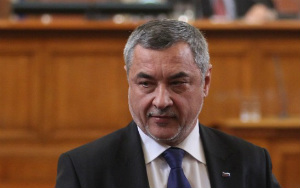
According to multiple recent reports from local media outlets, citing official data, Bulgaria’s regulated gambling market was worth BGN3 billion (€1.5 billion) in terms of revenue generated in 2017. Scratchcards, known to be extremely popular among residents of the tiny Balkan nation, accounted for the greater portion of the revenue bulk last year.
In fact, saying that these products are extremely popular in Bulgaria is a mild representation of the nearly maniacal obsession with which hundreds of thousands of Bulgarians, mostly elderly people, are buying scratchcards, lured by the promise for a quick and easy win and a better life.
Several companies owned by Bulgarian businessman Vasil Bozhkov are known to be leaders of the local scratchcards sector. Mr. Bozhkov is one of Bulgaria’s richest people. His business interests spread across various industries and his alleged ties to the criminal underworld have long been part of media coverage focused on his curious persona.
The National Lottery and New Games are actually two of the leaders in the nation’s scratchcards sector and they are both owned by entities that are related to Mr. Bozhkov. Special attention needs to be paid to the choice of name of what has turned into the most popular seller of scratchcards in Bulgaria – the National Lottery.
In the most general case, National Lottery usually refers to a state-run entity that provides different lottery products and services and uses a portion of the money generated by the sales of those for good causes. In the case of Bulgaria’s National Lottery, we are speaking about a privately-run entity. And despite our team’s efforts, we could not find any information about how much of what it generates it has contributed to good causes.
Should a private company run an operation under the National Lottery brand? We believe that the answer to this question is quite clear and it is a bit too disturbing that this company has been allowed to conduct its activities for years, even though it has nothing to do with the state.
The National Lottery in Bulgaria vs. the National Lottery in UK/Ireland
UK’s National Lottery was established in 1994 as a state-franchized entity operated by the Camelot Group. According to information from the lottery operator’s official website, it has contributed over £38 billion for good causes since it was founded more than two decades ago.
In Ireland, the National Lottery operates as a state-run entity that has been functioning since 1987. It has raised and donated more than €5 billion to good causes since established over three decades ago.
In Bulgaria, the National Lottery, as already mentioned, is a privately-run company, owned by a businessman who many would say has a rather questionable reputation, and it is quite unclear what contributions it has made to good causes, even though its official website states that it contributes funds to various education-related causes.
In other words, the National Lottery brand usually carries a connotation of an entity run by the state that offers lottery/gambling services but also considers it an important task to benefit communities by raising and distributing funds for good causes, unless you are in Bulgaria where the National Lottery does not really belong to the nation.
More Facts and Figures about Bulgaria’s Scratchcards/Gambling Industry
As mentioned above, Bulgaria’s gambling industry was worth around BGN3 billion last year. However, it is understood that licensed gambling operators, including those providing various lottery products, contributed just BGN177 million in tax revenue to the nation’s coffers. In comparison, Bulgaria’s tobacco industry was worth around BGN3.5 billion in 2017 and contributed BGN3 billion in excise duties and VAT.
As for Mr. Bozhkov’s lottery businesses – New Games and National Lottery – these were reported to have generated turnover of €88.5 million and €15.3 million, respectively, in 2017. The businessman’s overall gambling businesses reported turnover of nearly €300 million and profits of €76 million. Local media outlets also report that National Lottery was actually Bulgaria’s largest advertiser in 2017 with ad spending of over €23 million.
Ads promoting the operator’s scratchcard products can be spotted practically everywhere in the country and across different media outlets. In addition, scratchcards can be purchased across post offices, supermarkets, special points-of-sale, and a number of other facilities.
Meanwhile, according to the most recent information released, Bulgaria’s gambling industry contributed just around BGN2.2 million in 2016 and just around BGN2.4 million during the first three quarters of 2017 to responsible gambling causes. Licensed gambling companies are required to make such contributions under a provision in the nation’s gambling law.
Proposed Restrictions
If the bill succeeds in Bulgaria’s National Assembly, it would roll out curbs to the promotion and sale of scratchcards and related lottery products. For instance, lottery operators would not be able to show winners on television, a popular marketing approach to which the success of these products could be greatly attributed. In addition, scratchcards would only be sold at special points of sale. As mentioned above, products of this type are currently available practically everywhere.
While Minister Simeonov’s recently proposed curbs seem as if they might be a step in the right direction, Bulgaria still needs to do much more. The country does not have a dedicated organization that works with problem gamblers. And as it can be seen, nobody really finds it odd that a private company has named itself the National Lottery, while it does not really work for the nation, unlike state-run National Lotteries around the world.
The post Bulgarian Oddity: Private Company Operates as the National Lottery, But No One Seems to Care appeared first on Casino News Daily.

0 comments :
Post a Comment